Dialectical Behavioral Therapy for Adolescents (DBT-A treatment) is a specialized form of comprehensive treatment designed to help teenagers manage intense emotions, reduce maladaptive behaviors, and improve interpersonal skills. Originally developed by Linehan MM, DBT combines acceptance and change strategies to teach teens practical skills for emotion regulation, distress tolerance, and social skills to enhance relationships.
Adolescents often struggle with self-injurious behavior, suicidal ideation among adolescents, and high-risk behaviors such as substance abuse. DBT-A treatment provides specialized care through structured interventions to help teens replace negative emotions with healthier coping mechanisms. This effective treatment is particularly beneficial for teens experiencing borderline personality symptoms, post-traumatic stress disorder (PTSD), bipolar disorder, and other disorders in adolescents that contribute to emotional dysregulation.
DBT-A incorporates multi-family skills groups, adolescent DBT programs, and family DBT programs to support both teens and their caregivers. Research studies, including a systematic review and meta-analysis, demonstrate objective effectiveness in reducing suicidal and non-suicidal self-injurious behavior. Clinical findings from Rathus & Miller, Alec Miller, and the Journal of the American Academy of Child & Adolescent Psychiatry show larger effect sizes in improving relationship effectiveness, self-respect effectiveness, and reducing aggressive behaviors. Studies such as a 10-year prospective follow-up study and a 1-year open trial confirm DBT’s role in stabilizing symptoms among adolescents.

Skills Training: Teens learn specific strategies in four areas: mindfulness, distress tolerance, emotion regulation, and interpersonal effectiveness. These skills help them replace problematic behaviors with healthier coping mechanisms.
Individual Therapy: Focused one-on-one sessions allow therapists to address each teen’s specific issues, such as suicidal ideation or emotional outbursts.
Family Involvement: Family therapy sessions are included to teach parents how to support their teen’s progress and navigate challenges together.
Team Support: DBT for adolescents often involves a team of trained therapists working together to ensure comprehensive care.
DBT is adaptable and can be used in various settings, including outpatient programs, residential treatment centers, and inpatient treatment for more severe cases. It is especially effective for suicidal adolescent inpatients who require immediate and structured support.

While Dialectical Behavioral Therapy for Adolescents (DBT-A) for adults focuses heavily on individual therapy, adolescent DBT includes significant multifamily skills training. Parents learn how to encourage skill use at home, fostering a supportive environment for their child. Research, including a clinical trial, highlights the effectiveness of multi-family skills training in improving outcomes for disorder in adolescents and reducing suicidal and self-injurious behavior.
Additionally, DBT for teens incorporates a module called walking the middle path, which teaches balanced thinking and decision-making to bridge generational gaps between teens and their families. Studies in Child and Adolescent Psychiatry and findings published in the Journal of Personality Disorders confirm DBT’s role in treating adolescent self-harm and suicidal ideation.
Adolescent DBT is effective for teens with:
Borderline personality disorder traits.
Suicidal ideation or a history of suicide attempts.
Problematic behaviors, including substance abuse and self-injurious actions.
Emotion dysregulation and difficulty managing interpersonal relationships.
DBT is also beneficial for treating adolescents with co-occurring mental health conditions, including bipolar disorder, posttraumatic stress disorder (PTSD), and depression.

Our DBT program in Orange, CA, is comprehensive, offering both group and individual therapy sessions. Adolescents learn essential DBT skills in a supportive environment led by trained DBT therapists.
One-on-one sessions focus on specific issues like emotional regulation and problem-solving skills.
Teens learn mindfulness DBT skills and distress tolerance strategies in a group setting.
Families participate in sessions to enhance support and understanding at home.
When necessary, our team addresses co-occurring conditions through medication.
We also support teens who are facing self-harm, suicidal ideation, or ongoing family conflict. This comprehensive care model is a safe space for healing.
The treatment process emphasizes teaching skills to improve self-awareness and healthy coping mechanisms. Teens learn to replace problematic behaviors with constructive alternatives.
Identifying and managing painful emotions.
Walking the middle path to balance emotional extremes.
Building self-awareness and emotional regulation.
These tools help adolescent patients handle real or imagined abandonment, enhance interpersonal relationships, and develop self-confidence.
At Adolescent Mental Health, we recognize that mental health struggles impact not only the individual but also the entire family. The healing process is more effective when family systems therapy is integrated into a teen’s personalized treatment plan. While individual therapy provides a private space for teens to explore their emotions and negative self-talk, family therapy sessions help address family issues, improve communication, and foster healthy relationships within the household.
Our family therapists and experienced therapists use evidence-based therapeutic approaches, such as commitment therapy and interpersonal psychotherapy, to help families create a supportive environment. These counseling techniques help address sensitive issues, allowing both teens and their family members to develop healthy coping strategies. By working together, families can strengthen their bonds, support emotion regulation, and improve long-term healing outcomes.

For suicidal adolescents or those experiencing self-harm, DBT provides structured interventions. Dialectical behavior therapy helps teens reduce suicidal ideation and adopt healthier behaviors.
Distress tolerance skills are strategies designed to help individuals endure and navigate emotional pain or stressful situations without making impulsive decisions or worsening the problem. These skills are often used when immediate change is not possible or when emotional overwhelm makes problem-solving difficult. Key techniques include distraction, which shifts focus to a less intense activity, and self-soothing, which involves engaging the senses (e.g., listening to calming music or holding something comforting). Radical acceptance, another cornerstone of distress tolerance, emphasizes accepting reality as it is, rather than fighting against it. This approach reduces unnecessary suffering by promoting emotional clarity, enabling individuals to respond more effectively when the situation allows for change.
Interpersonal effectiveness skills focus on building and maintaining healthy relationships while respecting personal needs and boundaries. These skills help individuals communicate clearly, assert their desires, and handle conflicts constructively. One common framework is DEAR MAN (Describe, Express, Assert, Reinforce, stay Mindful, Appear confident, and Negotiate), which guides people in asking for what they want or saying no effectively. Additionally, GIVE (be Gentle, act Interested, Validate, and maintain an Easy manner) supports nurturing positive relationships, while FAST (be Fair, don’t Apologize unnecessarily, Stick to values, and remain Truthful) encourages self-respect. By practicing these skills, individuals can achieve their interpersonal goals while balancing self-respect and consideration for others.
Both sets of skills are commonly taught in Dialectical Behavior Therapy (DBT) and are invaluable tools for navigating life’s challenges with resilience and respect.
If you believe that Dialectical Behavior Therapy could benefit your teenager, reach out to Adolescent Mental Health. Our compassionate team is ready to provide the help and support needed for your teenager to embark on a journey toward emotional regulation, resilience, and a more balanced life. Visit SAMHSA for more information.
Borderline Personality Disorder (BPD) is a mental health condition characterized by intense emotional instability, impulsive behaviors, and difficulties in interpersonal relationships. People with BPD often experience emotional extremes, shifting rapidly between moods such as anger, sadness, and anxiety. These intense emotions can be triggered by real or imagined abandonment, leading to behaviors aimed at avoiding rejection or isolation.
One hallmark of BPD is emotional dysregulation, which makes it challenging for individuals to manage their feelings effectively. This dysregulation can result in self-harm, suicidal ideation, or other problematic behaviors as a way to cope with overwhelming emotions. Many individuals with BPD also struggle with identity disturbances, feeling unsure of who they are or what they want from life. This lack of self-awareness can further complicate their personal and social interactions.
BPD often coexists with other mental health conditions, such as depression, anxiety, or substance abuse. In adolescents, borderline personality traits may manifest as difficulties in maintaining friendships, impulsive decision-making, or self-injurious behavior. Early intervention is crucial, as untreated BPD symptoms can significantly impact academic, social, and family life.
Dialectical Behavior Therapy (DBT) is widely recognized as an effective treatment for BPD. This structured approach teaches individuals skills like emotion regulation, distress tolerance, and interpersonal effectiveness. By addressing both the emotional and behavioral aspects of the disorder, DBT helps individuals with BPD achieve greater stability, healthier relationships, and improved quality of life.
Our program integrates evidence-based DBT techniques with compassionate care tailored to adolescents. Our trained DBT therapists are experienced in treating adolescents facing severe emotional and behavioral challenges.
Comprehensive DBT program combining individual therapy and group skills training.
Focus on family involvement to ensure a supportive home environment.
Dialectical behavior therapy adapted specifically for teens.
Teens leave our program equipped with coping skills, improved emotional regulation, and enhanced interpersonal effectiveness.

Adolescent Mental Health is a dedicated virtual mental health treatment center exclusively focused on the mental health needs of teenagers, offering specialized care to address the unique challenges teens and families face.
Compassionate support, expert guidance, and tailored programs for adolescent mental health.
Connect with Adolescent Mental Health today. Let us guide your teenager towards resilience and well-being.